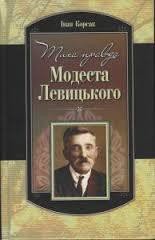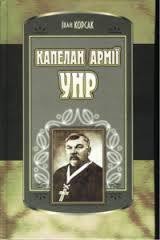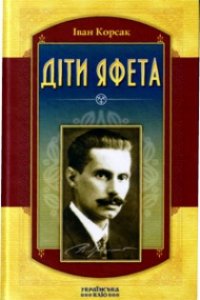Імена твої, Україно - Корсак Иван Феодосеевич "Korsak" (читать лучшие читаемые книги TXT) 📗
звичайнісінькими земними скарбами… Однак згадки про Ярослава Мудрого, певне,
вимагають деякого «коригування», бо точка зору про «новгородського князя» інколи
подається з російської дзвіниці. Тому доцільно надалі зіставляти дати, наприклад, з
«Вікіпедією», вдавшись до цитування навіть більш просторого уривка:
[22] «Після смерті свого батька Володимира Святославовича в 1015 році Ярослав
Мудрий у боротьбі за київський престол розбив війська Святополка біля Любеча і
засів на київський княжий престол, але 1018 року під натиском польських військ
короля Болеслава І, що їх взяв собі на допомогу Святополк, мусив покинути Київ.
Після остаточної перемоги в битві над р. Альтою 1019 року Ярослав Мудрий став
київським Великим князем.
Прагнучи об’єднати всі руські землі, Ярослав Володимирович змушений
був вести боротьбу проти свого брата Мстислава Володимировича, князя
тмутороканського і чернігівського. Після битви під Лиственом біля Чернігова 1024
року Ярослав мусив відступити Мстиславові Чернігівщину і всі землі на схід від
Дніпра, крім Переяславщини. Згодом, після укладеного 1026 року в Городку під
Києвом миру, почалося порозуміння і співпраця між братами. Ярослав Мудрий
допомагав Мстиславові у боротьбі з касогами і ясами 1029 року, розширивши власні
володіння до кавказьких гір; а Мстислав – у скріпленні й розширенні держави
Ярослава Мудрого на захід від Дніпра. На півночі 1030 року Ярослав зайняв землі
між Чудським озером і Балтикою й там заснував м. Юріїв, у 1030–1031 рр. війська
Ярослава і Мстислава відвоювали Червенські міста, які 1018 року загарбав Болеслав
І. Тоді ж Ярослав здобув від Польщі смугу землі між р. Сяном і Бугом; там збудовано
м. Ярослав і Белз. Після смерті Мстислава 1036 року Ярослав об’єднав під своєю
владою лівобережні землі, ставши єдиним володарем могутньої Київської держави.
У 1038–1042 роках Ярослав вів успішні походи проти литовських племен – ятвягів,
проти Мазовії, проти прибалтицько-фінських племен ямь і чудь».
[23] http://www.glasglow.com/e2/ha/Harald_III_of_Norway.html,
«Surnamed Haardraade (English: «Hardraada»), which might be translated «hard
reign», he was the son of King Sigurd and of King Olaf the Saint. At the age of fifteen he
was obliged to flee from Norway, having taken part in the Battle of Stiklestad [?] (1030),
in which King Olaf met his death. He took refuge for a short time with Prince Yaroslav[?]
of Novgorod (a Russian kingdom then, now a city, founded by Scandinavians), and thence
went to Constantinople, where he took service under the Empress Zoe of Byzantium,
whose Varangian guard he led to frequent victory in Italy, Sicily, and North Africa, also
to Jerusalem.
In the year 1042 he left Constantinople, supposedly because he was refused the hand
207
of a princess, and on his way back to his own country he married Ellisif or Elizabeth,
daughter of Yaroslav of Novgorod».
Based on an article from 1911 Encyclopedia Britanica
Editors: Hugh Chisholm in London, Franclin Henry Hooper in New York City
Published: 1910–11.
[23] «Названий Хардрадою (по-англійськи «Hardraada»), що можна перекласти
як «жорстке правління», він був сином короля Зігурда та єдинокровним братом
короля Олафа Святого. У 15 років, взявши участь в Стіклестадській битві (1030),
під час якої помер король Олаф, він був змушений покинути Норвегію. Недовго
переховувався у князя Ярослава із Новгорода (в той час королівство в Русі). Звідти
пішов до Константинополя, де найнявся до візантійської імператриці Зо і керував її
варязькою гвардією, щоб зробити частішими перемоги в Італії, Сицилії та Північній
Африці, також пересуваючись до Єрусалиму.
1042 року він покинув Константинополь, ймовірно тому, що йому відмовили
у просьбі руки принцеси, і дорогою до рідної країни він одружився із Елісіф або
Елізабет, дочкою Ярослава Новгородського».
Уривок базується на статті із 11 видання енциклопедії «Британіка»
Видавці: Х’ю Чішольм в Лондоні та Франклін Генрі Хупер в Нью-Йорку. Рік
видання: 1910–11.
[24] http://209.85.135.104/search?q=cache:Jojd-_z-oVwJ:www.ancientworlds.net/
aw/Post/284194+harald+hardrada+yaroslav&hl=ru&ct=clnk&cd=31&gl=ua
На форумі цього сайту велася дискусія на наступну тему: «Гарольд Хардрада
та візантійська імператриця Зо (та знімок мозаїки варязької гвардії)»
Цей текст було розмішено на сайті учасницею форуму Хіпатієєю Дідіус (Hypatia
Didius) 11 березня 2004 р.:
In a book entitled «WHAT LIFE WAS LIKE WHEN LONGSHIPS SAILED:
VIKINGS, A. D. 800–1100», edited by Denise Dersin, Alexandria, Virginia: Time-Life
Books, 1998, I ran across some interesting information regarding the Viking warrior
Harald Hardrada and the Byzantine empress Zoe on pages 80–86:
«…He charmed the Byzantine empress, Zoe, and those close to her said that she
secretly longed to marry him, although she already had a husband and consort, the emperor
Michael, and Harald was still pining for that «golden lady in Russia,» Elizabeth, who had
not yet been granted to him. Zoe’s fond regard for Harald ultimately turned sour, but he
was without fault in the eyes of his imperial patrons…»
«…he rose to become head of the Varangian guard…»
«…Even his imperial patrons who did well by his skullduggery, came to resent and
distrust him. After many rewarding campaigns, he returned to Constantinople and resigned
his command…»
«…But Empress Zoe was unwilling to let Harald slip away. She accused him
of withholding from the imperial couple their full share of the plunder and had him
imprisoned. Perhaps she still longed for him and wanted to keep him close, but her passion
208208
went unrequited. The only woman who ever came close to rivaling the distant Elizabeth
in Harald’s affections was Zoe’s alluring niece, Maria, and the empress was not about to
let Harald have her».
«No prison could hold Harald for long. With help from confederates, he escaped from
the dungeon, roused his Varangians, and assailed the emperor and put out his eyes. Then to
add insult to injury, he abducted Maria and carried her off in his longship. The great iron
chains at the mouth of the Bosporus blocked his exit, . . . but the ever-resourceful Harald
moved his gear sternward to elevate the prow and slipped up and over the chains with a
mighty assist from his oarsmen. Once safely free of Zoe’s grasp, he put Maria ashore and
bade her return to Constantinople and remind the empress how little power she had over
him, «for with all her might she could not have prevented him from marrying the girl».
«In truth, Maria was dispensable. On his way back to Norway, Harald stopped off
in Russia and renewed his suit for the hand of Elizabeth. Yaroslav could see by all the
treasure Harald had accumulated that he was worthy of a princess, and he sanctioned the
match. As one poet put it:




